 |
 |
 |
| |
Partners of people living with HIV (PLHIV): Findings from the positive perspectives survey
|
| |
| |
Reported by Jules Levin
IAC 2018 Amsterdam July 23-27
D. Garcia1, B. Spire2, S. Marcotullio3, M. Muchenje4, A. Namiba5, K. Parkinson6, B. Young7, B. Allan8, Y. Punekar9, A. deRuiter9, F. Barthel10, J. Koteff11, A. Ustianowski12, A. Murungi9, V. Carr9
Institutionsbr
1European AIDS Treatment Group, Madrid, Spain, 2French National Institute for Medical Research (INSERM), Paris, France, 3Nadir Onlus, Rome, Italy, 4Women's Health in Women's Hands Community Health Centre, Toronto, Canada, 5Salamander Trust, London, United Kingdom, 6Beacon Project, St Louis, United States, 7International Association of Providers of AIDS Care, Washington DC, United States, 8ICASO and Australasian Society for HIV, Viral Hepatitis and Sexual Health Medicine, Victoria, Australia, 9ViiV Healthcare, Brentford, United Kingdom, 10GlaxoSmithKline, London, United Kingdom, 11ViiV Healthcare, Research Triangle Park, United States, 12Pennine Acute Hospitals NHS Trust, Manchester, United Kingdombr
program abstract
Background: While studies have been conducted to evaluate the psychosocial effect of treatment and the support available to People Living with HIV (PLHIV), there remains a gap in understanding their influence on partners. We conducted an international survey of partners of PLHIV to explore the support offered specifically to them and their partner''s perception of their HIV management. Methods: Qualitative in-depth interviews were performed with PLHIV and their partners to identify key hypotheses. A steering group developed the survey questions which were fielded online from November 2016 to April 2017 in 9 countries across North America, Europe & Australia. A mixed sampling/recruitment approach was used to ensure a broad cross-section of PLHIV, and partners of PLHIV were recruited where possible. Results: 250 partners of PLHIV completed the survey from Europe (55%), North America (43%) and Australia (2%). 91% were male, 26% aged ≥50 years, 30% HIV+ themselves, and 77% lived with their partner. Results differed between HIV+ and HIV-ve partners: emotional support available to partners of PLHIV was rated as ''quite good'' or ''very good'' in 78% HIV+ partners but decreased to 53% in HIV- partners. Partners of PLHIV stated that they provided emotional support (87%) and encouraged their partners to raise concerns with their main HIV healthcare provider (80%), yet over half of partners would like to be more involved in these areas and 20% feel they sometimes lack the information needed for this role.
Of those whose partners were on ART (98%), 63% had helped their partner prepare for an appointment with their HIV HCP and had raised concerns about side effects (82%), strategies to reduce long-term impact of ART (62%) and the possibility of switching regimen (59%). Conclusions: In this international survey, nearly two thirds of partners were involved in discussions on treatment and were most often concerned about side effects and the long-term impact of ART. Partners represent an important support system for PLHIV, and dedicated resources to inform partners could enable them to become more involved in the support of PLHIV.
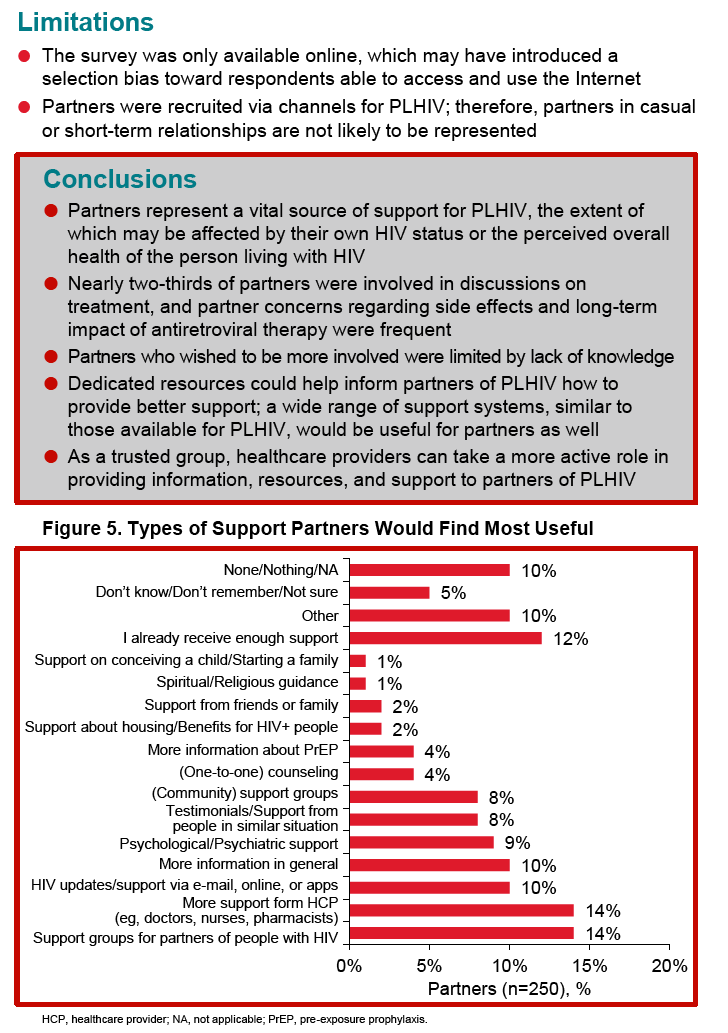
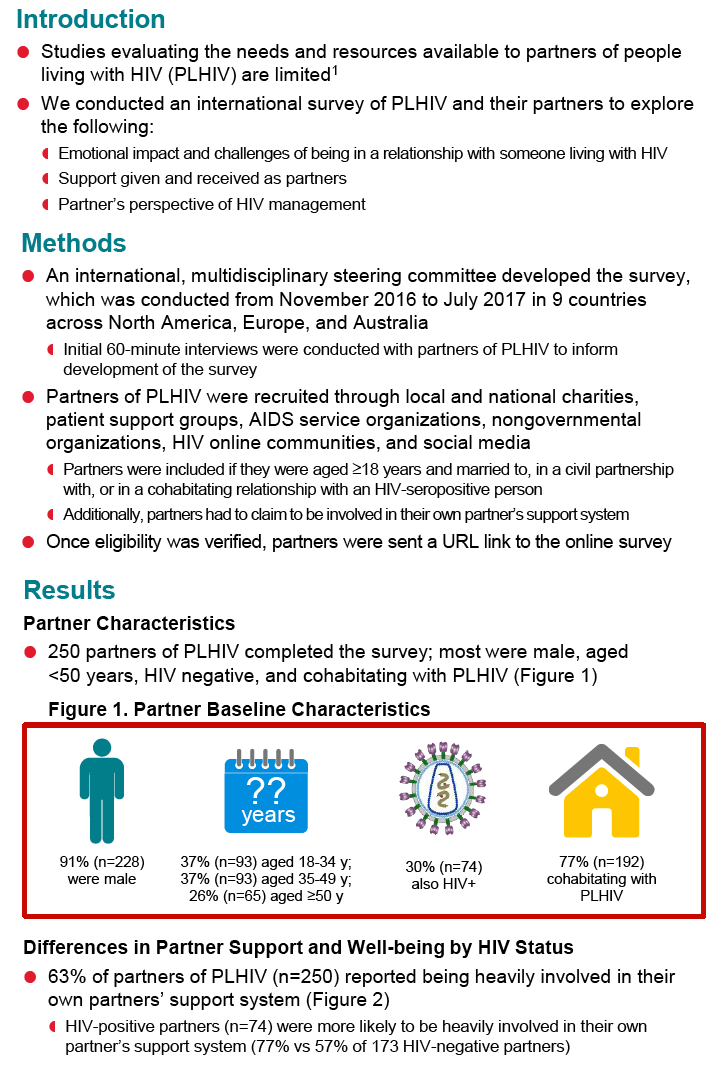
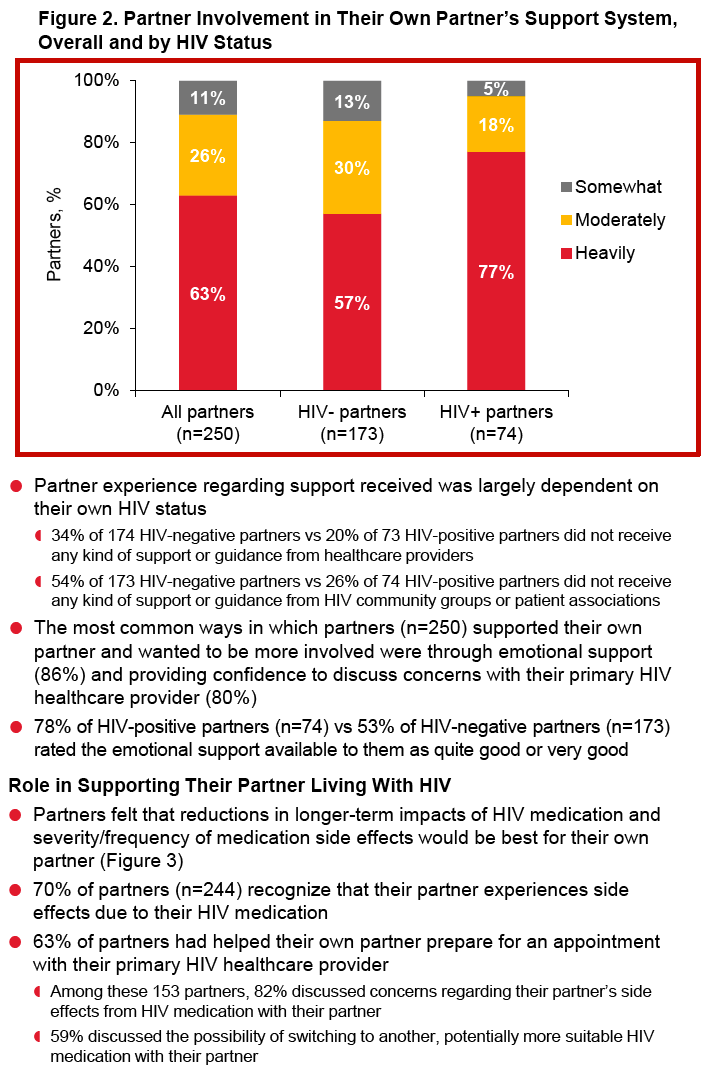
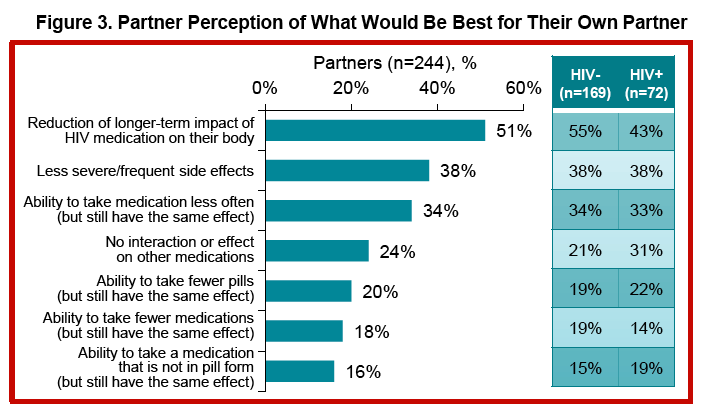
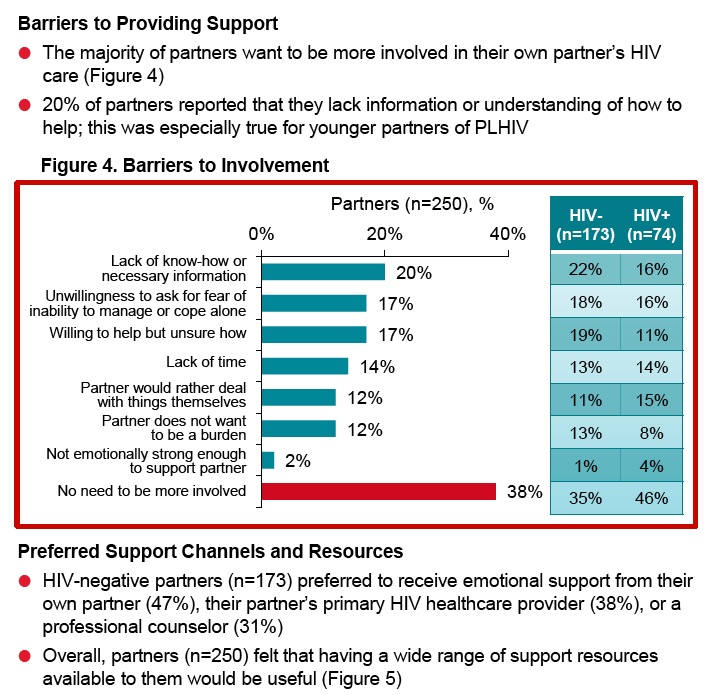
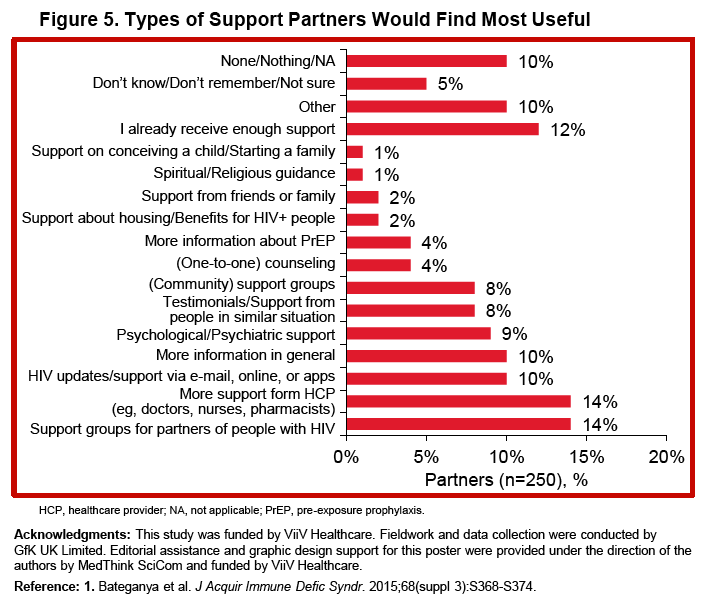
|
| |
|
 |
 |
|
|